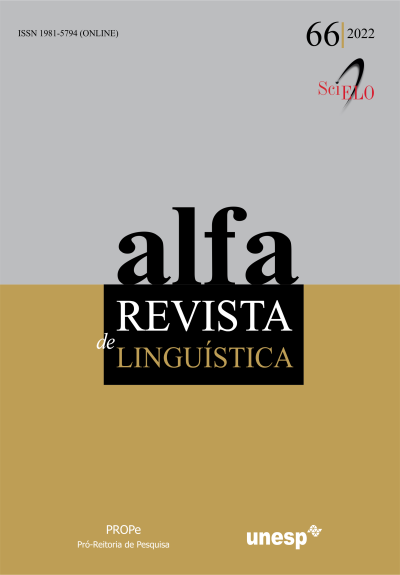Representations about the teaching of Portuguese Language in a rural school
DOI:
https://doi.org/10.1590/1981-5794-e14214Keywords:
mother language, teacher education, discourseAbstract
This research investigates discursive representations about the teaching of the Portuguese Language (PL), in a rural school in the Northern Region of Brazil. We take a transdisciplinary approach to Applied Linguistics and use theoretical assumptions of science education and discursive theories of language. Such assumptions inform the qualitative approach of the linguistic analysis carried out. The research data are constituted from a semi-structured interview, carried out before a pedagogical intervention within the scope of the research project ConGraEduC (CNPq 441194/2019-2). For this scientific paper, we considered the answers presented by students from basic education to eight out of fifteen questions in a script. For the analysis of the answers, we considered the interweaving between the intra and interdiscourse, in order to investigate the memory evoked by the participants when enunciating about PL and, especially, about grammar. Results suggest that grammar is represented both by a silencing and by the discourse of normativity once students claim not to know it and conceive language as a mere set of rules.
Downloads
Downloads
Published
How to Cite
Issue
Section
License
Copyright (c) 2022 ALFA: Revista de Linguística

This work is licensed under a Creative Commons Attribution 4.0 International License.
Manuscripts accepted for publication and published are property of Alfa: Revista de Linguística. It is forbidden the full or partial submission of the manuscript to any other journal. Authors are solely responsible for the article's content. Translation into another language without written permission from the Editor advised by the Editorial Board is prohibited.

